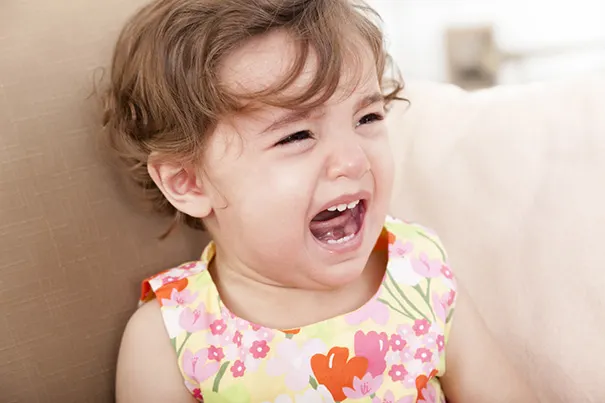The Emotional Child: why some babies cry more
There are children who routinely respond with tears to what seems like only the slightest provocation or challenge. Often they are viewed with disdain by other children and with embarrassment by their parents.
In the genes
Genetics and temperament seem to play a role in determining which children become cry-babies. They are often the newborns who startle easily, have difficulty adjusting to bright lights, or seem very sensitive to the texture of clothing and nappies.
More tears, more laughter
The positives:
That sensitivity appears to have a positive side as well: later on, these children generally become more empathic. They're quick to pick up and respond to the emotions not only of other children, but also of animals. In their social interactions, they not only cry more than their peers, but laugh more as well.
Why are they so emotional?
Rather than expressions of weakness, melodrama and tears are signs that a young child is emotionally overwhelmed. Since he cannot express the intensity of what he's feeling in words, his emotions come out in tears. Generally, toddlers and pre-schoolers are quite forgiving of a playmate who occasionally cries. It's more of a problem for the parents, who sometimes (and wrongly) interpret their child's tears as evidence of a failure on their part.
How you can help?
There are a few things that you can do to help a sensitive child handle stress his stress.
Let your child cry it out, especially when he's already upset Remember that bursting into tears is a sign that your child is emotionally overwhelmed. If you choose this moment to tell him not to cry, he'll become even more upset and produce even more tears. Instead, give him the comfort he needs to regroup emotionally.
Focus on the positives, not the negatives If you tell your child that routine experiences like doctor or dentist visits 'won't hurt' or 'won't be scary', this will only raise your child's anxiety. After all, he'll wonder why you would bring up pain if there isn't going to be any! Instead, arrange a visit to the dentist's surgery to look at the equipment, go for a ride in the chair and have his teeth counted. That way, he'll be more relaxed and cooperative when he returns for his actual exam.
Check whether you may be reinforcing the crying unintentionally Some children cry because they think it's the only way they can get their parents' or teachers' undivided attention. If you think this may be what's going on, be sure to pay extra attention to your child when he's behaving the way you'd like.
Teach your child alternatives to crying For example, a pre-schooler will often focus on the emotions of a situation ('She's mean. I hate her!'). This tends to perpetuate the crying. After acknowledging his intense feelings ('I can see you're very angry at your sister'), help your child focus on the behaviour that led up to the problem ('Did she push you?').
Talk about what else he might have done besides bursting into tears (Wait until he's calmed down, of course!) You'll have to supply the alternatives, such as talking about what they are upset about, especially at first. Do a little role-playing so he can practise one of these new approaches for the next time he's stressed out.
Your child may easily get upset, but you'll soon realise that his increased sensitivity has its rewarding moments too, and that he will fill his days with laughter and empathy for others.

